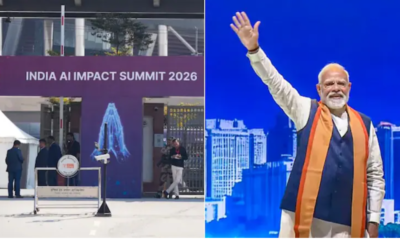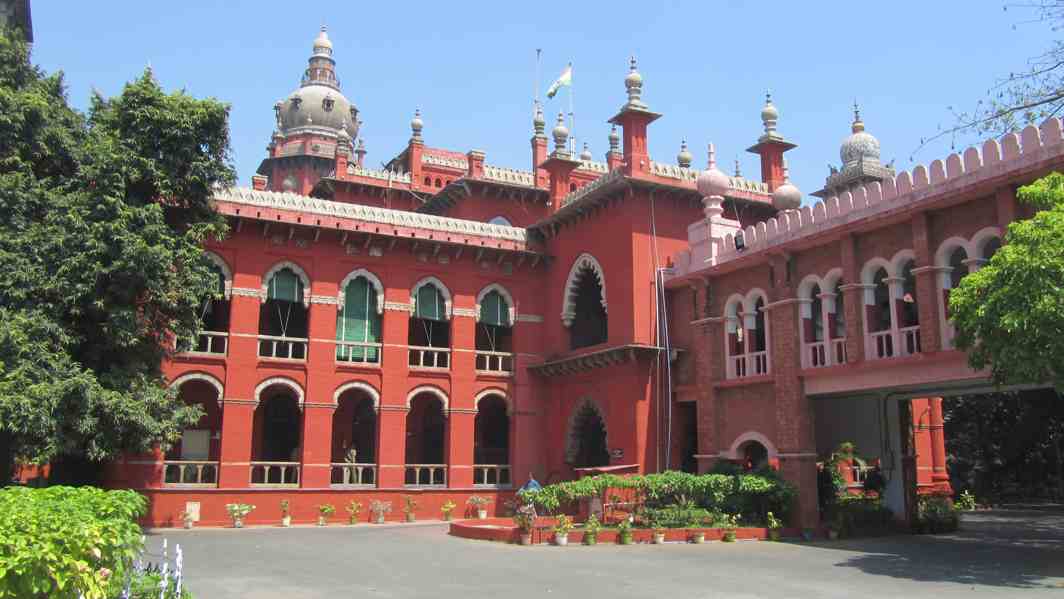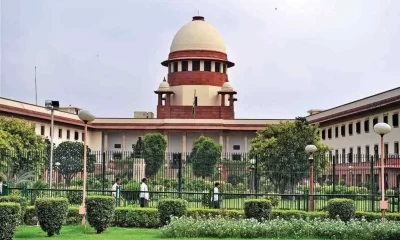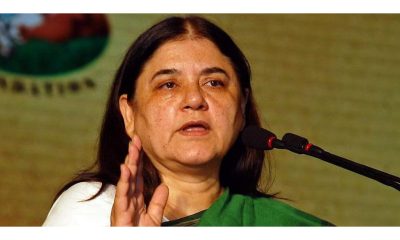India became the ninth country in world to maintain a dedicated database on sexual offenders with the Centre on Thursday rolling out a National Registry of Sexual Offenders (NRSO), a massive database of convicted sexual offenders from across the nation.
Other countries to maintain a database of sexual offenders are USA, United Kingdom, Australia, Canada, Ireland, New Zealand, South Africa and Trinidad and Tobago. Except for US, the date of convicted sex offenders is purely for the consumption of the law enforcement authorities. US is the only country to keep its database in public domain even as the demand to review the policy grows.
India too has said that the database will remain accessible to law enforcement agencies only.
The database will have personal details, including residential address, fingerprints, photo-identification, Aadhaar numbers, DNA sample and PAN number of not only convicted criminals but also of those accused of the crime or against whom an FIR is registered.
However, the details of arrested and chargesheeted offenders can be accessed only by officers with the requisite clearance, The Indian Express reported.
The government is also mulling over introducing the list of juvenile offenders, the newspaper reported. But a final decision on the same will be taken at a later time.
The decision to set up the database was taken in April following nationwide outrage over cases of sexual assault on minors, including the rape and murder of an eight-year-old girl in J&K’s Kathua.
The Union Cabinet had subsequently promulgated the Criminal Law Ordinance, 2018, for the death penalty to be handed out to those convicted of raping children below 12 years.
With the launch of this database, the Government hopes to convey the message ahead of elections next year that the safety of women and children is its top priority. Recently, it set up a National Mission for the Safety of Women, headed by the Union Cabinet Secretary, to undertake specified actions, including setting up Special Fast Track Courts, strengthening forensic facilities, appointing additional public prosecutors, and providing appropriate medical and rehabilitation facilities to victims.
The National Crime Records Bureau (NCRB) will be tasked to maintain the database and profile of sexual offenders over the past fifteen years, with details from jails across the country.
According to NCRB, there has been a three per cent increase in crimes against women and a 12 per cent rise in rapes in 2016, as compared to 2015. As many as 38,947 rape cases were registered in 2016, up from 34,651 in 2015. Overall, cases of crimes against women rose from 3,29,243 in 2015 to 3,38,954 in 2016, according to NCRB.
India has one-fifth of the world’s child population and unfortunately, also has the largest number of child sexual abuse cases registered in the world. According to government figures released in December 2017, a child is sexually abused every 15 minutes.
Following the US style, the database classifies offenders based on the ‘severity of threat’ they pose to the society. According to The Hindu, the data will be stored for 15 years in the case of those who pose a low danger, 25 years for those posing “moderate danger” and lifetime for “habitual offenders, violent criminals, convicts in gangrape and custodial rapes.”
Move gets support from WCD ministry, child and women rights’ groups
There have been instances in the past where convicted sexual offenders have committed the crime multiple times only because there was no central registry maintaining records.
Union Minister of Women and Child Development Maneka Gandhi has been a long-time advocate of such a register. When the 38-year-old Sunil Rastogi was arrested earlier this year for raping and sexually assaulting minors, he confessed to the cops that he had assaulted around 500 girls in the states of Delhi, Uttar Pradesh and Uttarakhand. Rastogi was arrested, jailed and then released only to repeat this crime. Union minister Maneka Gandhi lamented that if an SOR was in place, many of Rastogi’s crime could have been prevented, said report on news portal Firstpost.
Gandhi pointed out that the listing of names of sexual offenders and placing it in the public domain would definitely act as a deterrent.
Sunita Krishna, who runs the NGO Prajwala which claims it has rescued and rehabilitated more than 10,000 rape victims, told Firstpost that she suppports the move. She believes only “the public naming and shaming of offenders” will stop this sharp increase in rape.
Nobel laureate Kailash Satyarthi had also urged the government to push for a registry of sexual offenders, propagating the ‘name and shame’ approach in dealing with sexual predators. “Name and shame them. Sexual offenders should not be accepted as employees anywhere,” he had said in the past.
Experts point out flaws in system, say move will discourage victims from reporting crime
“Government statistics (in the US) indicate that most sexual abuse of children is committed by family members or trusted authority figures, and by someone who has not previously been convicted of a sex offence. In India, too, children are often sexually abused by people known to them and regarded as authority figures. The government must ensure implementation of existing measures…including enforcement of the POCSO Act,” Jayshree Bajoria, author of Human Rights Watch report documenting barriers to justice for sexual assault survivors in India, told PTI.
Activists in India say that the talk of these lists is a knee-jerk reaction to cases such as the Kathua and Unnao rape cases, both of which involved minor victims, and is intended to satisfy the public rage against sexual abuse by strangers.
“If it is a family member, a person known to the family of the victim, which is true in most cases in India, will this work? I have my doubts. The registry operates most aggressively in the US. However, there is very little evidence in that country to show that it has helped to prevent sexual assaults against children,” said Supreme Court advocate KV Dhananjay.
Speaking to Hindustan Times, Apar Gupta, a lawyer who works on privacy issues, even opined that there is no empirical evidence to support that the law actually helped bring down crime in countries where it has been existence for over a decade.
“Many international studies have shown that instead of preventing repeat offences, maintaining such a database has an adverse affect as person accused of sex crime does not have any incentive to reform. His identity as a rapist is established for life even after he has completed his sentence,” he said.


 Latest world news18 hours ago
Latest world news18 hours ago
 Latest world news18 hours ago
Latest world news18 hours ago
 India News18 hours ago
India News18 hours ago
 Latest world news9 hours ago
Latest world news9 hours ago














